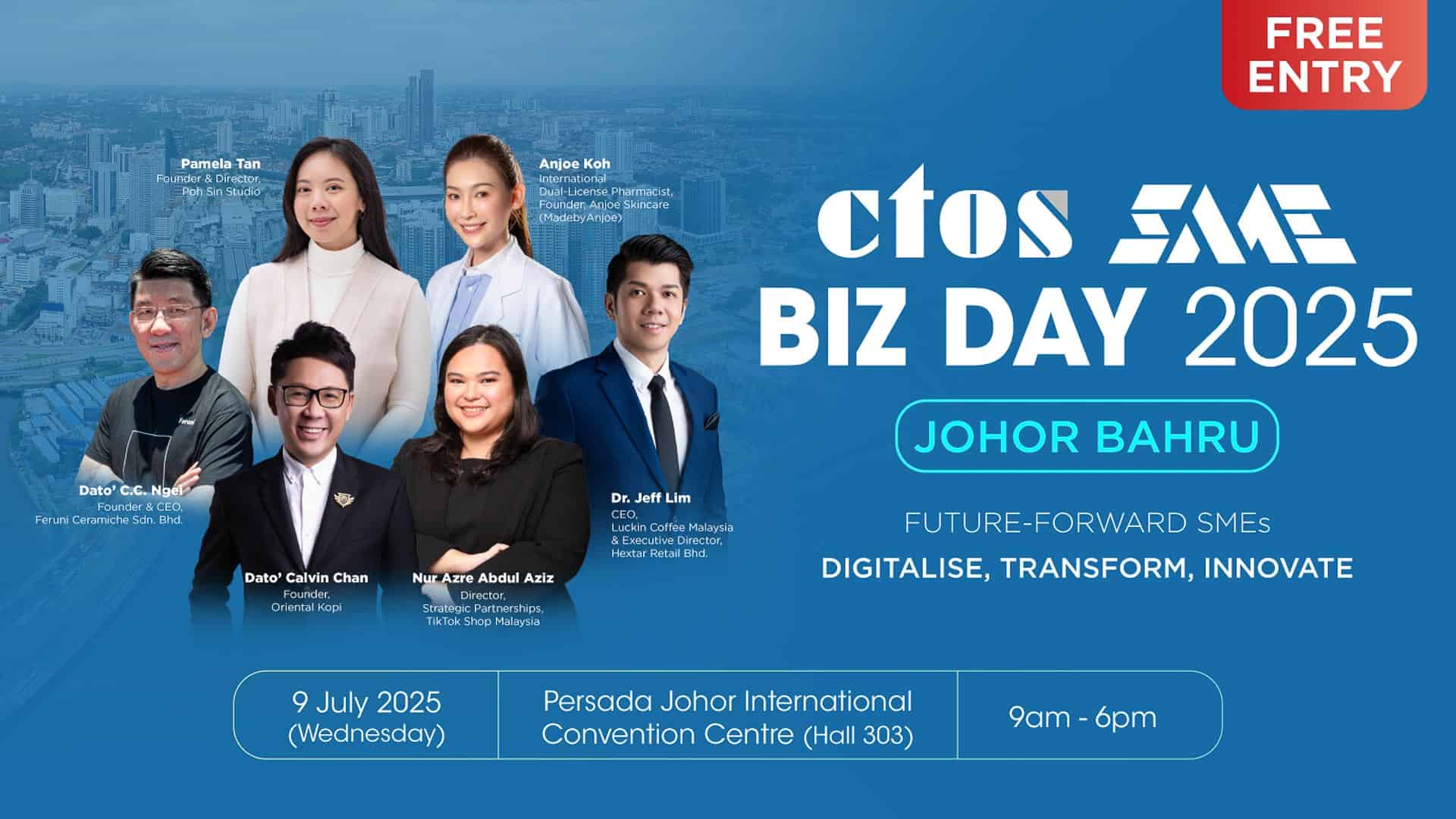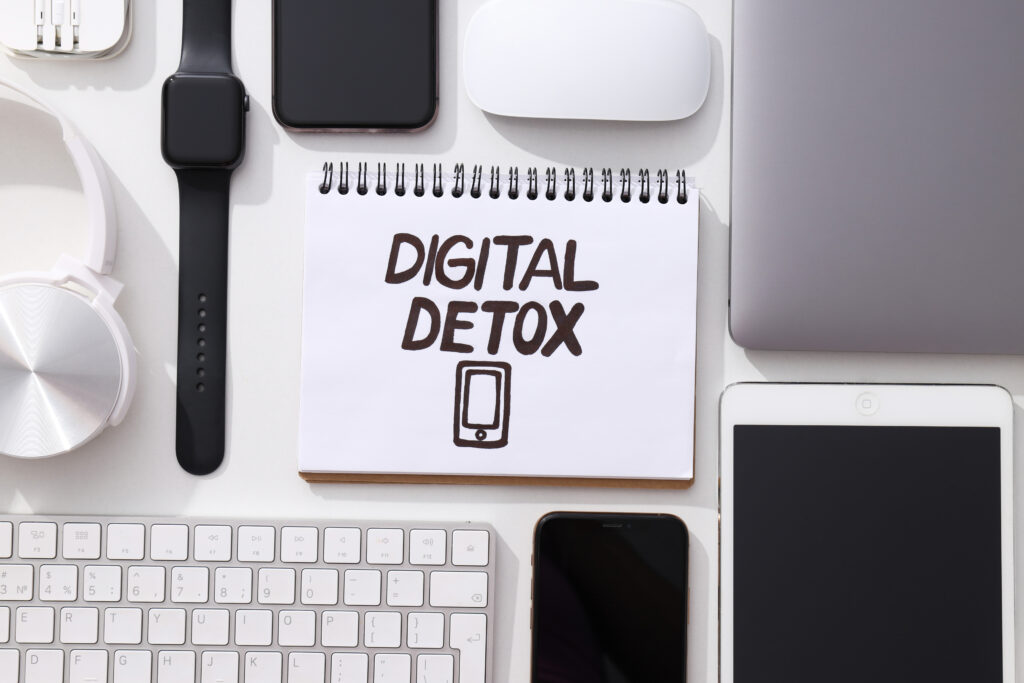

With the year-end season being a time of contemplation, perhaps it’s also time to reflect on our relationship with digital content. Many of us now find ourselves glued to our screens, navigating an endless maze of notifications, alerts and information. A survey published earlier this year showed that the average Malaysian is online 8 hours every day, with most spending almost 3 hours a day on social media alone. [1]
Of course, there’s nothing nefarious about being online; humans are inherently social creatures, and the digital world is just another medium for connection. However, this state of affairs begs a larger question: how does this constant connectivity — especially when paired with an influx of harmful content — affect our well-being?
When the scrolling is endless
Research suggests that excessive screen time can increase stress and anxiety, and even make us physically unwell. [2] The keyword in all of this is “excessive”. As psychiatrist Dr Ravivarma Rao Panirselvam puts it, “Harmful social media use is when the user’s day-to-day function is affected, such as at their jobs and other roles in society.” He adds the speed and scale of social media interactions can encourage the need for instant gratification, feeding into potentially addictive behaviour.
These modern day problems are prevalent enough that we’ve coined new terms to describe them.
There’s “doomscrolling” — the act of endlessly scrolling through social media or online platforms, compulsively consuming streams of negative news. While we might feel a sense of responsibility to stay informed about current events, studies show that passively taking in such sheer volumes of information in one go can sometimes be counterproductive, and even harmful to our mental health . [3]
Unhealthy digital consumption habits can also amplify regular human emotions and insecurities. Take the “fear of missing out” (or FOMO), which refers to the perception that one is missing out on fun experiences, crucial information, and chances to form social connections. While not a new phenomenon, the boom of social media has meant that we have ample opportunity to compare our regular lives to other people’s highlight reels.
“Sometimes we as users are not cognizant that content that is posted online is heavily curated and serves a purpose which may be far off from reality,” adds Dr Ravivarma Rao. “There is published evidence of social media affecting users’ self-esteem; we tend to compare ourselves to those who are more ‘socially upward’, making us feel bad about ourselves. .”
Embracing the digital detox mindset
A digital detox — disconnecting from digital media for some time — offers a chance for us to mentally reset and reassess how we consume digital content. Unplugging, even for a little while, gives us the space to regain control of our focus and rediscover what is truly meaningful to us.
Rather than a dramatic one-off event, a digital detox represents a mindset shift. While there’s no one-size-fits-all approach, here are some simple ways to get started:
Self-regulation is the ability to manage your reactions and behaviour towards things that are happening around you. This includes avoiding impulsive actions, understanding why you feel certain emotions, and taking the time to respond appropriately. Within the digital sphere, this means taking responsibility for your online activities, making sure they match your personal values.
We all know how easily time flies when you’re browsing — the desire to just look at one post can turn into hours of mindless scrolling. Try setting clear boundaries, where you allocate specific periods of time for checking the news or social media. If this seems too daunting, you can even begin with “micro-breaks”, before working your way up to longer tech-free durations.
Remember, you don’t have to follow everyone. Unfollow or mute social media accounts and pages that consistently share distressing content, clickbait aimed at eliciting anger or even positive content that makes you feel the effects of FOMO. Opt for reputable news sources, and consider subscribing to curated newsletters so you don’t have to constantly check for updates.
If you find yourself unconsciously picking up your phone every time you feel bored or restless, consider writing down a wishlist of alternative things you want or need to do. Be it catching up with a friend, delving into a new hobby, or even a chore you’ve been putting off for ages, use this list as a handy menu of screen-free options.
With digital distractions beckoning to us 24/7, carrying out a digital detox can be difficult. Overcoming these temptations requires persistence, and sometimes we may falter despite our best intentions. Accept that breaking bad habits is a gradual process, and it’s important to keep trying as you ease yourself into positive change.
“Cultivating a mindful relationship with our digital world is not just a choice; it’s a responsibility,” said Mediha Mahmood, Chief Executive Officer of the Content Forum. “In an era where our lives unfold both online and offline, the importance of a digital detox cannot be overstated. At the Content Forum, we champion the art of self-regulation, empowering individuals to curate a healthy content ecosystem for themselves.”
With 2024 just around the corner, consider shifting towards a healthier digital lifestyle by trying out a digital detox and adopting self-regulation. Aside from giving you some much needed respite from all the digital noise, unplugging will also help you identify how you can make social media serve you — rather than the other way round. Here’s to stepping into the new year with intentional online choices that will enrich our digital experiences.